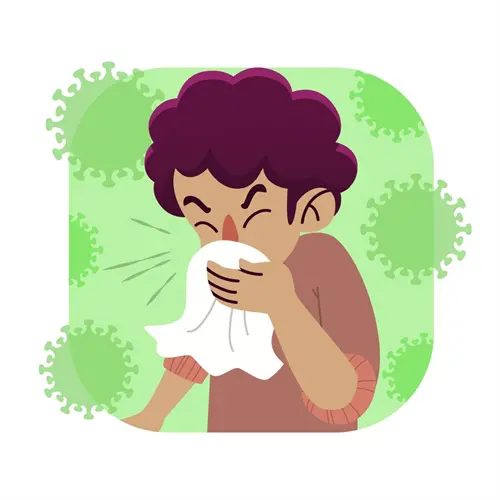Preventive Healthcare
Down Syndrome: Symptoms, Causes, Types, and Treatment Explained
3422 Views
0

Down syndrome, a genetic disorder, has significant implications for those it affects. It brings a range of physical and developmental challenges. People with down syndrome have 47 chromosomes instead of the usual 46, leading to unique health considerations.
Understanding the causes of Down syndrome, symptoms, and impact of down syndrome is vital for comprehensive healthcare and support. This article delves into these core aspects, drawing insights from reputable sources. The aim is to provide a well-rounded understanding of this genetic condition, fostering empathy and awareness.
What is Down Syndrome?
Down syndrome, also known as Trisomy 21, is a genetic disorder characterised by the presence of an extra copy of chromosome 21. This additional genetics leads to physical and developmental challenges. Down syndrome is the most common chromosomal disorder in humans, causing intellectual disabilities and various health issues. The condition varies in severity and early interventions can improve the quality of life for individuals with down syndrome.
Who Does Down Syndrome Affect?
Down syndrome occurs in people of all races and economic levels. The risk increases with the mother's age (1 in 1250 for a 25-year-old mother 1 in 1000 at age 31, 1 in 400 at age 35, and about 1 in 100 at age 40). However, 80% of babies with down syndrome are born to women under the age of 35 years.
What are the Risk Factors for Down Syndrome?
The common risk factors for down syndrome include:
- Maternal Age: The risk increases with maternal age, as older eggs have a higher chance of chromosomal abnormalities.
- Consanguinity: In addition to advanced maternal age, consanguinity increases the risk of down syndrome.
- Environmental Factors: Exposure to chemicals, educational status, and lifestyle habits might contribute to the risk.
- Previous Down Syndrome Birth: Having a child with down syndrome increases the risk of subsequent pregnancies.
- Other Health Complications: Down syndrome may be associated with increased risks of leukaemia and thyroid problems.
How Common is Down Syndrome?
Globally, the down syndrome occurs in about 1 in 700 live births. In India, the prevalence is around 1 in 800 to 1 in 1,000 live births. These figures can vary and advancements in healthcare may impact Down syndrome prevalence rates over time.
What are the Symptoms of Down Syndrome?
Down syndrome, a genetic condition, presents a range of physical and cognitive symptoms. It is important to note that individuals with down syndrome may exhibit varying degrees of these down syndrome symptoms. Some key down syndrome symptoms include:
- Cognitive Impairment: Individuals with down syndrome often exhibit mild to moderate intellectual disability. Their cognitive abilities may vary, but there is typically a delay in language and speech development.
- Distinct Facial Features: People with down syndrome commonly have distinct facial features, including a flattened facial profile, almond-shaped eyes, a small nose, and a protruding tongue. These features contribute to the recognisable appearance associated with down syndrome.
- Low Muscle Tone (Hypotonia): Hypotonia is a condition characterised by decreased muscle tone, leading to a floppy or loose appearance. Babies with down syndrome may have difficulty holding up their heads and may seem to lack strength in their muscles.
- Joint Laxity: Individuals with down syndrome often have more flexible joints than usual. This can contribute to a characteristic way of moving and may impact mobility.
- Congenital Heart Defects: About half of individuals with down syndrome are born with congenital heart defects. These can range from mild to severe and may require medical intervention.
- Gastrointestinal Issues: Digestive problems, such as gastrointestinal blockages or malformations, are more common down syndrome symptoms.
- Hearing and Vision Impairments: Hearing loss and vision issues, such as refractive errors, are more prevalent down syndrome symptoms in people.
- Thyroid Disorders: Individuals with down syndrome also have a higher risk of thyroid disorders, such as hypothyroidism.
It is important to note that the presentation of symptoms varies widely among individuals with down syndrome, and not everyone will experience all of these down syndrome symptoms in the same manner.
What are the Causes of Down Syndrome?
Down syndrome results from a spontaneous error in cell division during the formation of sperm or egg cells. This anomaly leads to an additional copy of chromosome 21, altering normal brain and body development. The presence of this extra chromosome defines the genetic basis of down syndrome, affecting individuals' cognitive and physical characteristics.
Types of Down syndrome
Down syndrome manifests in three main types, each characterised by distinct chromosomal abnormalities. Here are the main types of Down syndrome:
- Trisomy 21 (Non-Disjunction): This is the most common form, accounting for about 95% of causes of Down syndrome. It occurs when an individual has three copies of chromosome 21 in each cell instead of the usual two. The extra chromosome usually originates from the mother's egg, leading to the presence of 47 chromosomes.
- Mosaic Down Syndrome: In this less common form, individuals have a mixture of cells, some with the usual 46 chromosomes and others with the extra chromosome 21. Mosaicism Down syndrome arises from errors in cell division after fertilisation, resulting in a combination of cells with and without the additional chromosome.
- Translocation Down Syndrome: This form of Down syndrome involves an extra part or a whole extra chromosome 21 attaching to another chromosome, usually chromosome 14. While the total number of chromosomes remains at 46, the presence of the extra genetics can lead to the typical characteristics associated with Down syndrome. Translocation Down Syndrome can be inherited or occur spontaneously.
How is Down Syndrome Diagnosed Before Birth?
Several prenatal screening and diagnostic tests can help identify the signs of Down syndrome during pregnancy.
Prenatal screening tests, such as Non-Invasive Prenatal Testing (NIPT) and Maternal Serum Screening, assess the likelihood of Down syndrome based on specific markers in the mother's blood or foetal DNA. While these tests provide a probability, they are not definitive.
For a conclusive diagnosis of Down syndrome, invasive diagnostic procedures are required. Chorionic Villus Sampling (CVS) and Amniocentesis involve collecting a small sample of cells from the placenta or amniotic fluid, respectively. These cells are then analysed to determine the chromosomal composition of the foetus. These invasive tests carry a slight risk of complications including a potential risk of miscarriage with CVS, so their use is generally reserved for situations where the risk of Down syndrome is higher.
Nevertheless, expectant parents must discuss the available options, potential risks and benefits with their healthcare provider. After all, early diagnosis allows for informed decision-making regarding pregnancy management and preparation for the potential challenges associated with Down syndrome.
How is Down syndrome diagnosed after birth?
After birth, down syndrome is initially diagnosed based on physical traits like a flattened facial profile and almond-shaped eyes. Confirming the down syndrome diagnosis involves additional testing. Chromosomal analysis, notably the karyotype test, examines blood samples to confirm the presence of an extra chromosome 21. This definitive diagnosis enables tailored medical care and support for individuals with down syndrome, ensuring appropriate interventions and assistance.
What if I Find Out That the Foetus has Down Syndrome?
Discovering that a foetus has down syndrome can be emotionally challenging for expectant parents. Therefore, it is crucial to seek support from healthcare professionals, genetic counsellors for down syndrome treatment, and support groups who can provide information, guidance, and empathy.
Understanding the condition's impact, available resources, and potential interventions can aid in making informed decisions. While some parents may choose to continue the pregnancy, others might opt for medical interventions or prepare for the unique needs of a child with down syndrome.
Open communication and accessing appropriate resources can help navigate this journey with compassion and informed choices for the well-being of both the child and the family.
How is Down syndrome Treated?
Down syndrome does not have a cure, but treatment focuses on managing associated health conditions and supporting developmental needs. Here are some of the down syndrome treatment options:
- Early intervention programs offer therapies like speech, occupational and physical therapy, which can help with downs syndrome features.
- Special education programs for down syndrome assist cognitive development.
- Medical care addresses health issues such as congenital heart defects.
- Supportive services and community inclusion enhance the overall well-being of individuals with down syndrome.
How to Raise a Child with Down Syndrome?
Raising a child with Down syndrome involves embracing their unique needs and abilities while fostering an inclusive and supportive environment. Here are key considerations:
- Early Intervention: Engage in early intervention programs for down syndrome in infants providing therapies like speech, occupational and physical therapy to address developmental milestones.
- Education and Inclusion: Advocate for inclusive education related to down syndrome, ensuring your child has access to appropriate academic and social settings. Encourage a supportive school environment.
- Healthcare: Regular medical check-ups and addressing specific health concerns of down syndrome, such as heart conditions, are crucial. Collaborate with healthcare professionals for comprehensive care.
- Social Support: Build a strong support network, connecting with other families facing similar experiences with down syndrome. Share insights, seek advice and celebrate achievements together.
- Encouragement and Patience: Foster a positive and patient atmosphere, encouraging your child's independence. Celebrate their accomplishments and provide a nurturing space for growth with down syndrome.
- Advocacy: Be an advocate for your child's rights, ensuring they receive the support and accommodations they need. Stay informed about educational and healthcare policies regarding down syndrome.
- Future Planning: Consider future independence and living arrangements. Explore vocational training and employment opportunities suitable for your child with down syndrome.
- Embrace Uniqueness: Celebrate your child's individuality. Recognise their strengths and interests, allowing them to pursue activities that bring them joy and fulfilment.
It is crucial to remember that every child with down syndrome is unique and approaches may vary. So, tailor your parenting style to suit your child's needs and seek guidance from professionals and support groups for valuable insights.
What Other Medical Conditions are Associated With Down Syndrome?
Down syndrome is often associated with various medical conditions, including:
- Endocrine problems,
- Dental issues,
- Seizures,
- Thyroid conditions,
- Lethargy,
- Lack of concentration,
- Weight gain,
- Dry coarse skin,
- Memory impairment,
- Intolerance of colds,
- Intellectual disability,
- Vision and hearing problems,
- Skin abnormalities,
- Behaviour challenges,
- Sleep apnoea,
- Fertility issues, etc.,
Regular medical check-ups and proactive management are crucial to addressing these associated Down syndrome health conditions effectively.
How Can I Prevent Down Syndrome?
Down syndrome is primarily a result of genetic factors, specifically the presence of an extra chromosome 21. Down syndrome is not preventable through lifestyle or medical interventions. Therefore, prenatal screening and testing can identify the condition during pregnancy, allowing for informed decision-making, but prevention is not possible.
What Can I Expect if I Have a Child Diagnosed With Down Syndrome?
Having a child diagnosed with down syndrome comes with unique challenges and joys. Parents often focus on early intervention, specialised education, and healthcare.
A typical day involves addressing developmental needs, fostering inclusion, and cherishing milestones. While there are extra considerations, the journey is filled with love, resilience, and the rewarding experience of celebrating the unique strengths of the child with down syndrome.
Is There a Cure for Down Syndrome?
Currently, there is no cure for down syndrome. However, ongoing research explores potential down syndrome treatment to address specific challenges associated with the condition.
Can People Diagnosed with Down Syndrome Have Children?
While men with down syndrome are usually sterile, women with down syndrome can conceive. However, they might face increased risks during pregnancy. There is a 1 in 2 chance of a child having down syndrome if the mother has it. Although rare, pregnancies in women with down syndrome are possible, highlighting the importance of addressing genetic, reproductive and obstetric concerns.
Conclusion
Understanding down syndrome is vital for healthcare professionals and the community. This genetic condition, marked by an extra chromosome 21, poses unique challenges. Metropolis Labs, a leading diagnostic chain in India, champions health awareness with precise pathology services, ensuring accurate results through advanced diagnostics. Their at-home blood collection, led by qualified technicians, offers convenient and accurate testing, contributing to a holistic approach to health.























 WhatsApp
WhatsApp